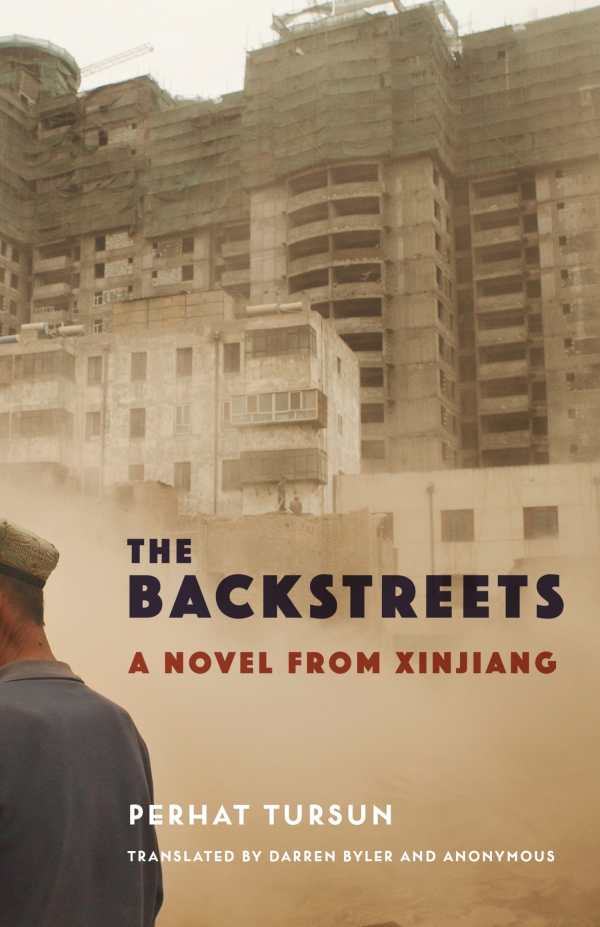The Backstreets
The Backstreets is an absurdist, stream-of-consciousness novel by now disappeared Uyghur writer Perhat Tursun. It is an ominous meditation on isolation, oppression, and dehumanization.
One night, an anonymous Uyghur government office worker in Ürümchi searches the city for a place to stay. Obsessed with numbers and their connections, he finds a scrap of paper with three numbers on it; these become his lodestar. He seeks an address comprised of those numbers.
Throughout the night, the worker is overwhelmed by the polluted fog of the city. People float in and out of its dense miasma; buildings are obscured; streets vanish. He asks for directions but encounters only the suspicions of the city dwellers. The night stretches into a series of rejections and abuse, and the worker tries to understand the new world around him.
As he travels, the man’s thoughts drift through his memories and elusive dreams. The evocative setting becomes central, laden with vibrant images and sensory details: “windows look like gloomy gashes on the body of a man who had been beaten to death.” And the fog becomes the man’s nemesis, seeping into his blood and eliciting visceral reactions.
Tursun’s is the first Uyghur novel to be translated into English and is a rare window reflecting the daily degradation by the Chinese government of this tyrannized ethnic minority. The novel relies less on plot and characterizations than on emphasizing the bleak emotional existences of Uyghur people. A one-sentence incantation that’s repeated throughout the book encapsulates this sense of isolation and alienation.
The Backstreets is a politically charged, emotional novel about the impacts of prejudice, industrial city life, and desolation on China’s Uyghur people. It is a major literary event that is honest in its portrayal of oppression.
Reviewed by
Monica Carter
Disclosure: This article is not an endorsement, but a review. The publisher of this book provided free copies of the book to have their book reviewed by a professional reviewer. No fee was paid by the publisher for this review. Foreword Reviews only recommends books that we love. Foreword Magazine, Inc. is disclosing this in accordance with the Federal Trade Commission’s 16 CFR, Part 255.

